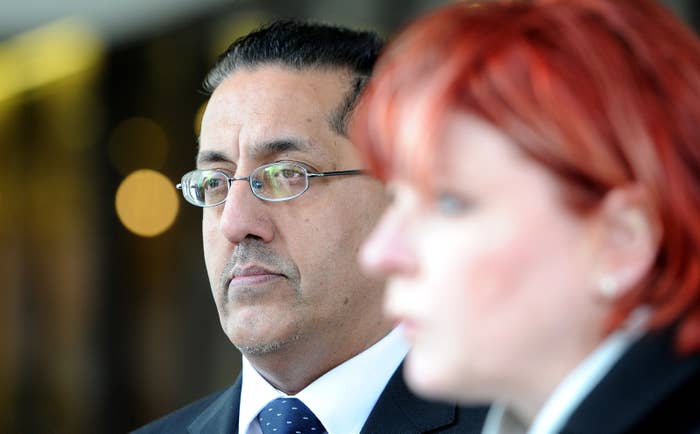
A former chief prosecutor for the North West of England has made history at the press watchdog by becoming the first non-white member of the board that judges media complaints.
Nazir Afzal, who successfully led a high-profile case against a sex abuse gang in Rochdale and later worked as head of the national body for police commissioners, was announced on Wednesday as a new member of the complaints committee of the Independent Press Standards Organisation (IPSO).
It means Britain's most senior Muslim lawyer will sit on a board that has the power to assess complaints concerning potential breaches of the editors’ code, which can result in newspapers and magazines issuing corrections or apologies.
An IPSO spokesperson confirmed Afzal would be the committee's first non-white member since it was established in 2014 following the wind-up of the Press Complaints Commission, an organisation that received much criticism for its lack of action in the phone hacking scandal.
In a statement, Afzal said: “I am absolutely delighted to be joining the complaints committee. I have been interested in IPSO’s work since its creation and am confident that my background in law and community engagement will bring a unique perspective to the committee’s work.”
Delighted to be able to play my part in press & magazine regulation through Independent Press Standards Organisation https://t.co/555ZKi7om1
Afzal stood down as chief executive of the Association of Police and Crime Commissioners amid reports of a row over media coverage of the Manchester terror attack, and has recently been in a series of BBC North West documentaries about tackling extremism.
Afzal joins new appointees Miranda Winram, who is on the board of Forest Enterprise, which manages England's forests, and Andrew Pettie, a journalist and editor of 20 years.
IPSO appoints three new members to its Complaints Committee https://t.co/NS5GWY9S4S
Sir Alan Moses, IPSO chairman, said: “I am very pleased to welcome Nazir, Miranda and Andrew on to the complaints committee. Nearly 600 applied to join the committee. Many of these would have been suitable to serve as independent members, exercising astute and impartial judgement.
"This response and the quality of the three successful candidates amply demonstrate the high standing and reputation of IPSO after three years."
The announcements come just weeks after IPSO found itself under fire for not doing enough to tackle what critics said was racism in the press, with thousands of people signing a petition urging the watchdog to investigate a "climate of hostility".
The press watchdog, which received more that 14,000 complaints last year, still has Trevor Kavanagh, the controversial Sun columnist, as a board member. He was criticised in August for using the phrase "The Muslim Problem", which was met by a joint complaint to IPSO by "horrified" Muslim and Jewish organisations.
Analysis by BuzzFeed News revealed that inaccurate or misleading news reports about Muslims have received hundreds of thousands of shares on social media in 2017.
The analysis was compiled with Miqdaad Versi, a management consultant from London and assistant secretary general of the Muslim Council of Britain, who has made almost 40 complaints this year to IPSO about reports he has found in newspapers. Many of his complaints have resulted in articles being retracted, being entirely changed, and receiving corrections.
Versi told BuzzFeed News: "It is very welcome that IPSO's complaints committee is starting to become more diverse.
"Whilst this will not solve some of the structural issues surrounding the independence of IPSO, or the huge deficiencies in the editors' code, one can only hope that this will help reduce the number of rulings that appear to misunderstand minority communities."
